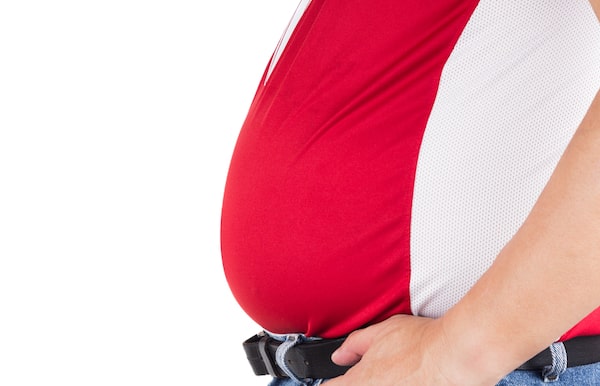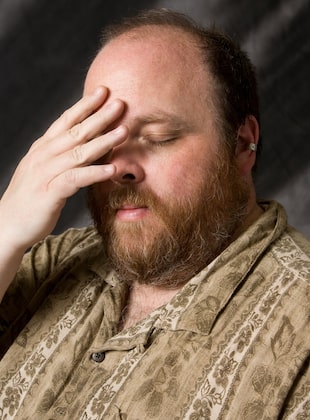Obesity and Hair Loss – Are They Related?
When it comes to hair loss, the first thing that often pops into the mind of the public is the loss of hair being caused by genetics or less likely as the result of a medical condition or infections. There is nothing wrong with this line of thinking as hair loss can be caused by these conditions. However, a recent report is spotlighting the idea that obesity might play a part in the hair loss of an individual. The study was conducted by some of the researchers at the Department of Stem Cell Biology at Tokyo Medical and Dental University.

Obesity and Hair Loss – Is There a Connection?
According to Webster’s Dictionary, obesity is “a condition that is characterized by the excessive accumulation and storage of fat in the body”. A person that has excessive body fat runs the risk of suffering from health problems as the condition often results from the intake of a larger amount of calories than are burned off through the normal daily activities and exercise habits of the person.
In general, obesity can predispose people to diseases associated with age. The exact effect that obesity has on organ dysfunction is not well-known at the moment.
Hair follicles on the scalp (that grow hair) are miniaturized by the aging process. In turn, this can cause hair loss to occur on the scalp through the depletion of hair follicle stems cells.
Obesity and Hair Loss – Results from a Recent Study
 In a recent report about this study, found on nature.com, it was revealed that stress can be induced by obesity. The stress that is induced on the body by a high fat diet can target hair follicle stem cells and accelerate the hair thinning process.
In a recent report about this study, found on nature.com, it was revealed that stress can be induced by obesity. The stress that is induced on the body by a high fat diet can target hair follicle stem cells and accelerate the hair thinning process.
In addition, an analysis of chronological gene expression showed that following a diet that is high in fat (for four consecutive days) in young mice directed the activated hair follicle stem cells in the mice towards epidermal keratinization. Keratinization is the process where the cytoplasm of the outermost cell of the epidermis is replaced by keratin (the protein type that makes up the skin, hair, and nails). The epidermal keratinization process happened in species that generate excessive reactive oxygen, but the process did not reduce the available amount of hair follicle stem cells.
The use of integrative analysis for stem cell fate tracing, epigenetics and reverse genetics showed that the continued practice of a high fat diet led to the inducing of lipid droplets and NF-kB activation within the hair follicle stem cells (though paracrine and/or autocrine IL-1R signaling).
These integrated factors were found to converge on the marked inhibition of Sonic hedgehog signal transduction in hair follicle stem cells. The result was a further depletion of hair follicle stem cells, that are lipid-laden, through their total amount of aberrant differentiation and the induction of hair follicle miniaturization (as well as eventual hair loss).
Obesity and Hair Loss – What does the Data Tell Us?
Now that the data from the study is listed above, what does it mean when it comes to obesity having an influence on the hair loss process?
Taken together, the data shows that stem cell inflammatory signals, that are induced in a patient by the condition known as obesity, greatly represses organ regeneration signals which also leads to a greater acceleration in the miniaturization process of mini organs. In addition, it also seems to suggest that the daily prevention of any type of organ dysfunction plays a big part in the continued health of a patient and often helps to slow down, delay or prevent hair loss from occurring in a patient.
Hair Loss – What Can You Do about it?
The issue of hair loss has long been an area of concern for patients of all ages. The loss of hair on the scalp can have a negative impact on the confidence and self-esteem of a person while also leading the person to try and hide the appearance of thinning hair with a hat or simply not going out in public to meet others.
There are multiple symptoms of hair loss that can appear on the scalp and they include:
- Patterned hair loss that is quite gradual and starts on the top, front, and crown areas of the scalp.
- Sudden hair loss can be the result of an emotional or physical shock experienced by a person. The hair can start to become loose on the scalp and this is generally known as “shock loss”.
- Patchy bald sports, and/or circular bald spots, can occur on the scalp. This patchy hair loss can sometimes be caused by an autoimmune disease or it can be self-inflicted due to continuous hair pulling (trichotillomania).
If you are suffering from hair loss of any degree on the scalp, you can schedule a consultation appointment with our team to learn more about the reasons for the condition. Our experienced team will examine your scalp to determine the cause of your hair loss and create an individualized medical plan to restore a youthful and healthy hairline on your head.
If you want to know more about the benefits of a Los Angeles hair transplant, or a San Francisco hair transplant for our friends in Northern California, contact us today and take the first steps towards making your hair loss a thing of the past.